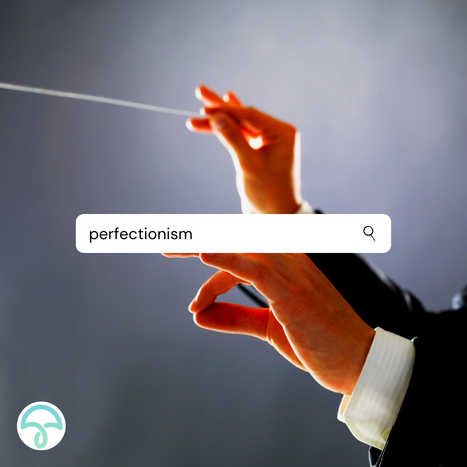How To Cope with Christmas Depression and the Holiday Blues The holiday season is not always a joyful time for everyone, and many individuals struggle with their mental health, grief, loss, or distance from loved ones. The image of a merry Christmas dinner with a loving family is not the reality for everyone, despite what social media and commercials may project. So, how can you cope during this tough time? While you cannot control your circumstances, you can still find ways to make the holidays peaceful and restful. In this article, I will provide tips for finding peace during the holidays, even if they cannot be entirely happy. Ultimately, it is about finding peace with your current situation and being kind to yourself.
0 Comments
Burnout vs Depression: What’s The Difference & How To Recover Feel like you can’t take it anymore? Like your life is too much to handle? Is sleeping all you want to do all day? If yes, you might be experiencing something within yourself that isn’t quite right. Most often, this can be a sign of depression or burnout. But how can you tell the difference between the two? What is Learned Helplessness and How Can We Overcome It? There once was a young boy who loved the circus. At the circus, he was particularly fascinated by the elephants. At the end of the elephant show, he went to where the animals were kept and saw all animals in cages. All except one. The elephant. Despite being the largest animal at the circus, the elephant was tied to a stump with a comparatively small rope. The little boy wondered to himself why the elephant would not just break free and run away. It clearly could with very little effort!  Social media is a paradox. It can get us closer to others, but it can also leave us feeling inadequate and lonely. It can help us develop ourselves or lead us down the path of social media burnout. The good news is that we can choose how social media affects our wellbeing. Here we explore some concrete steps we can take to make social media our friend.  Social media is one of the latest technological advances that have most effectively changed our everyday lives. It has shaped our daily habits, our economic structures, and how we relate to one another. Our social media channels have become the first and last thing we do in our day. And despite the many benefits social media has granted us, there is a darker face to it. We are referring to the negative consequences that occur due to our excessive use of social media; social media burnout.  In this quick paced world we sometimes underestimate the power of pausing. No, we are not talking about the wonderful practice of meditation. We are talking about pausing to understand what is going on inside your mind. Pausing and observing your thoughts is one of the main pillars of one of the most popular therapeutic approaches. An approach that can help you cope with stress, anxiety, depression, burnout and many other mental health issues. This is CBT, and today we bring forward a metaphor that will help you understand this approach better. 5 Powerful Benefits of Walking Mindfully in Nature + Tips Yesterday I had an epiphany. After a long day of work, I went walking in nature. I spent a few hours enjoying the view and listening to the chirping birds. As I was amid these natural wonders, I began thinking about the incredible health benefits and therapeutic power of having a short walk in nature. During my journey, I took photos of the sea, admired the tall trees, and noticed the subtle changes in the water. I felt relaxed and in awe, and as I came back, I realized I have to share this experience with you and share with the world the fantastic benefits a short walk in nature can bring to our mental health. 9 ways that perfectionism can lead to burnout First of all, let’s clear out a really common misunderstanding. We believe that perfectionism is a healthy mindset that leads to perfect results, perfect achievements, perfect life, to perfection. However, the truth is somewhat different: perfectionism is the stress we feel in order to be perceived as perfect by others or ourselves and the exhausting effort we put in order to deal with that stress. In other words, perfectionism feels like we are not enough and we need to try more in order to become so. And when we say “try”, we mean try a lot. The Pros and Cons of Being a Perfectionist As we wrote in our previous article ‘How Much of a Perfectionist are you?’, perfectionists tend to feel that nothing they ever do is good enough; that they need to work unrelentingly in a bid to better themselves, or else there’ll be negative consequences. If a perfectionist feels he/she is not meeting the high standards they hold for themselves, they will often experience distress or inner unrest which can affect negatively their mood or result in anxiety. With this description perfectionism sounds like a really unpleasant, unwanted trait. So why do so many of us personify it? Well, as behavioural psychology tells us, everything we do is done because we believe it will be of benefit to us (or it has benefitted us somehow in the past) - and perfectionism is no different. The perfectionistic thoughts described above breed by definition an intense drive to perform well, and their continued presence in our lives can be put down to the successes and external validation (who doesn’t love compliments?!) this increased drive once brought us.  Mental wellbeing and inner balance are not a luxury. They are a necessity. In a world of constant worrying, being busy, commuting, changing and adjusting, we need some stability, and that’s something that needs to come from within. So, we continued our research on applications that you can install on your mobile phone and can help you find more inner peace and become more mindful within your environment. In our previous article, we shared 6 apps that boost mental health, and here we continue with another 6 (there are a lot, indeed, so we had to choose wisely).  Technology has often been blamed as the villain of the contemporary world, bringing more trouble and threats than help and comfort to our once-peaceful-and-simple life. For example, smartphones. We spend so much time in front of our screens, looking forward to getting a “like” or a reaction from our followers, to see how our friends are spending their time and how much fun they are having, as well as comparing our body, our friends, our holidays and our happiness with theirs. The result? We feel like we will never be as good as them, have as much fun as them, be as loved as them, and so on. Yes, it is true that smartphones have been blamed for giving us a lot of trouble since they were invented, from FOMO (Fear Of Missing Out) to panic attacks or even to making us feel depressed. Are smartphones just bad news? Are they nothing more than a way to feel miserable about ourselves? One could say it all depends on the way you look at it… Psychosomatic Symptoms “Listen to your gut”, “I’ve got a bad feeling about this” These are everyday sayings which actually refer to the concept "psychosomatic symptoms". So what exactly are they? The word ‘psychosomatic’ combines two ancient Greek phrases. ‘Psyche’, the Greek for soul, is commonly seen in words like psychologist, psychiatrists, psychedelics, etc., and is a reference to the concept of the mind. ‘Soma’ is the Greek term for our body; that is, our limbs, organs, bones, head, face, genitals, and anything else we consider as part of our physical anatomy. Psychosomatics, then, is a term describing the influence of mental or emotional states on bodily symptoms and sensations.  Nowadays only a few of us see food purely as a source of nutrition for our bodies. Food is generally associated with pleasure, reward and a whole range of human emotions and conditions. Just think of all the images of popular culture depicting people eating cartons of ice cream after a break up or sipping tea in order to fill up uncomfortable silences.  There’s something really sad about Christmas. You can see it in all these commercials with families gathered around the table, blissfully celebrating the festive days with their loved ones, exchanging perfectly-wrapped presents next to shiny Christmas trees, with everyone smiling and feeling so lucky to have each other. What??? You can’t see it yet? To give you a hint: In this “merry” picture, projected through media and social media... ...where are the people who are grieving the loss of a loved one? ...where are the people who can’t spend time with their friends and family because of work?  There is this idea that Inner peace is like a destination, where, upon reaching, you become a brand new person and nothing upsetting or discomforting can get to you anymore. In this “Inner Peace Land” (if we can call it like that), there is no stress or any uncomfortable emotion; there is no conflict, there is no pain, there is no fear. And we even believe that if once something upsetting comes, we will not even blink, due to our “zen” zone that we have successfully acquired. Reality Check: is there such a place? NO. How much of a Perfectionist are you?
 Defeating anxiety, stress, negative thoughts, procrastination and fears has never been easy. And it never will be. Not because there is something wrong with us, or because we are doing it the wrong way, but because it is something that indeed requires from us conscious effort, time, practice and a lot of mental energy. We are actually rewiring our brain: changing the neuron paths existing since childhood which take us a certain way, into a different path, where things happen in a different way and are linked to different thoughts.  Everyone talks about the downside of depression. But is there a good side at all? Anger and stress, for example, can help us adapt to external threat and protect ourselves. But depression? Is there any actual benefit to it? In this article we will discuss the bright side of depression; how in the midst of a storm, we can sometimes catch a glimpse of a rainbow. |
Therapy |
|
